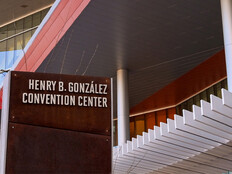FCC Chairman Wants E-Rate’s Spending Cap Raised to $3.9B
Four months after the Federal Communications Commission approved a plan to modernize its E-Rate program, FCC Chairman Tom Wheeler is proposing to increase its annual spending cap by $1.5 billion.
E-Rate provides discounts on telecommunications and Internet services for schools and libraries. The program, formally known as the Universal Service Fund’s Schools and Libraries Program, currently has a $2.4 billion spending cap; the proposal would raise it to $3.9 billion.
The FCC posted details about Wheeler’s proposal online on Nov. 17. Raising the cap to $3.9 billion would allow more schools and libraries to have the E-Rate subsidies as the uphill battle to provide broadband to students nationwide continues.
In 2013, the federal ConnectED initiative was launched to provide high-speed Internet to 99 percent of classrooms by 2018. Addressing a group of the nation’s school superintendents Wednesday at the White House for the ConnectED to the Future summit, President Barack Obama said that fewer than 40 percent of schools have been able to meet that challenge so far.
“I’ve said before, in a country where we expect free Wi-Fi with our coffee, the least we can do is expect that our schools are properly wired,” Obama said.
The E-Rate program’s original annual cap was set at $2.25 billion in 1997. It remained at that rate until 2010, when it was raised to $2.4 billion to adjust for inflation. The FCC fact sheet for Wheeler's proposal describes the cap increase as a “catch up” for the lack of an inflation adjustment from 1997 to 2010.
E-Rate is funded through the FCC's Universal Service Fund, which assesses fees on phone bills. The current fee is 99 cents per month for each landline and mobile connection, according to The Los Angeles Times. An additional 16 cents per month in fees would be required to cover the proposed increase.
“While the impact on consumers will be small, the impact on children, teachers, local communities and American competiveness will be significant,” an FCC statement on the proposal says.
Beyond the spending cap increase, Wheeler’s plan calls for a "series of targeted policy changes" intended to lower the cost of providing broadband to schools and libraries. Among these changes is a one-time E-Rate subsidy for construction projects that will provide high-speed connectivity.
Wheeler’s proposal received approval from Education Secretary Arne Duncan, who released a statement saying it would position the country closer to the realization of ConnectED’s goal.
“We applaud the FCC’s continued efforts to help level the playing field so that all students have access to fast broadband, giving them the best chance to succeed in the global economy,” Duncan’s statement says.
American Library Association President Courtney Young says libraries’ broadband networks often don't have the necessary bandwidth to support their communities’ needs. In a written statement, Young says she believes Wheeler’s plan “will go a long way [toward] changing the broadband dynamic.”
However, Wheeler's proposal drew disparaging comments from FCC Commissioners Ajit Pai and Mike O'Rielly, the five-member panels two Republicans. Each released written statements following the announcement of Wheeler's plan on Nov. 17. Both GOP commissioners also voted against the modernization plan the commission approved in a 3-2 vote in July.
“How will the FCC pay for this spending spree?” O'Rielly’s statement asks.
The FCC are scheduled to vote on Wheeler's proposed plan at a hearing in December.









